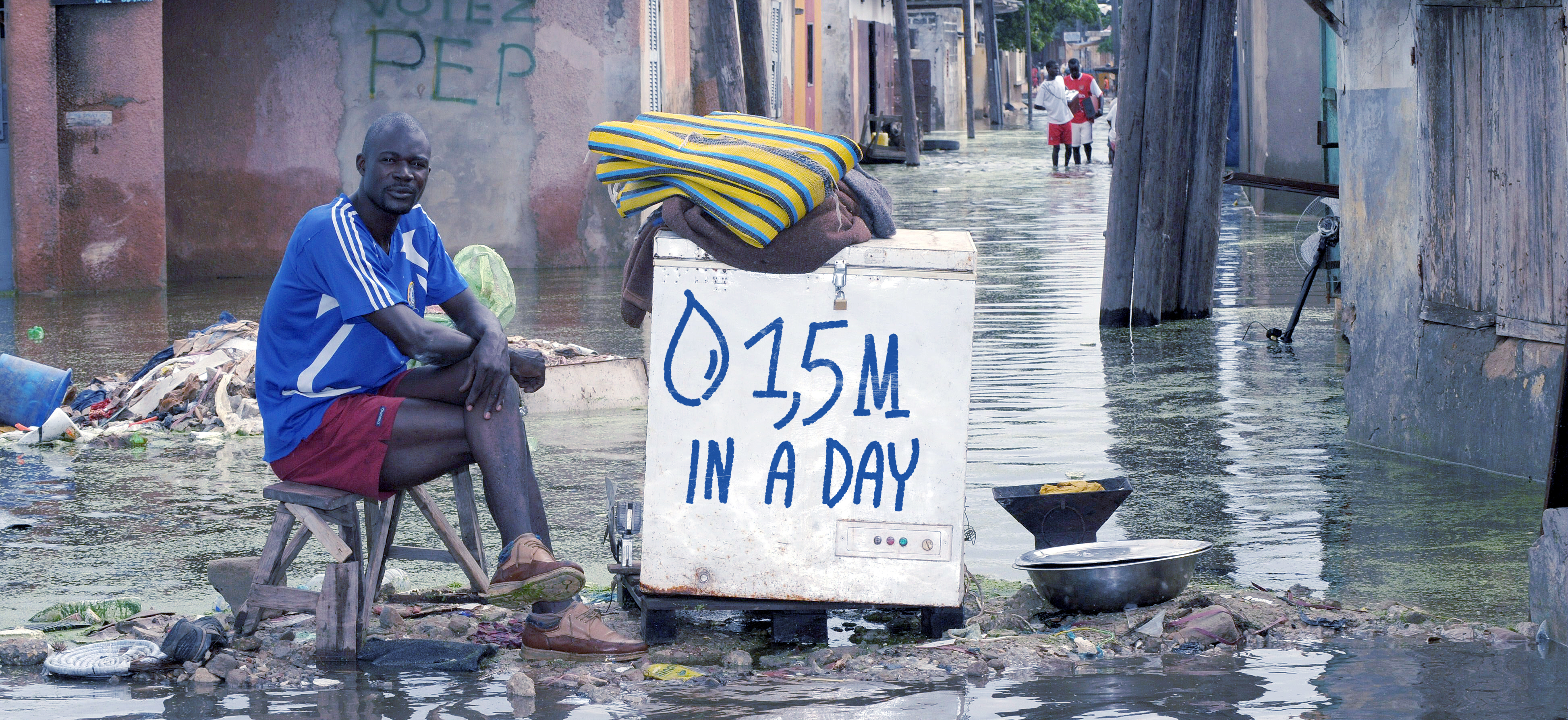In 2012, 1,5 metres of rain fell in two hours in Dakar, the capital of Senegal. People died, and flood water and the waste it carried spread diseases. Water destroyed buildings and water and power supply systems. It was not a new problem. The residential areas on the city outskirts had been built hastily and without planning, and there were no sewers or gutters. Water had risen to alarming levels already during several rainy seasons. Climate change is expected to make matters even worse.
The World Bank and other donors helped the Senegalese authorities to chart the flood damage and make plans for addressing the situation. The sewers and other flood control elements built 2012–2016 benefit 125 000 people in an area of 450 hectares. Spillway channels have also lowered the level of groundwater, which helps the soil absorb rain water. Thanks to all the preparedness measures, the region was spared from damage from the heavy rainfall in 2015. Finland supports the World Bank in its work to combat climate change and adapt to its negative effects.
Photo: AFP / Lehtikuva / Seyllou Diallo, graphics: Juho Hiilivirta
